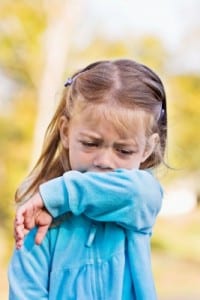
Unfortunately, over the last several years, the Centers for Disease Control had reported an increase in the number of whooping cough cases in the United States. While some of this could be attributed to under-vaccinated or unvaccinated children, the numbers are just too high to lead researchers to believe anything other than the idea that the whooping cough vaccines are losing their efficacy before the booster shot can be given. Former studies have found this to be true. Another recent study from the Southern California Permanente Medical Group in Pasadena has been added to that list of concerning evidence.
“What has become apparent is there’s a fairly dramatic and startling increase in pertussis in children in the 7 to 10-year-old age group,” H Cody Meissner, a pediatrician from the Tufts University School of Medicine, who did not take part in the study told Reuter’s Health.
The data from the Southern California Permanente Medical Group in Pasadena confirms this after following more than 400,000 children from the states of Minnesota and Oregon. All of the children had been born between the years of 1997 and 2003, and all received the recommended five doses of DTaP prior to age six. Researchers used their immunization records and state-wide whooping cough data to track how many of those children ended up with whooping cough before age 11.
After following the children over the next several years, researchers found that 458 of the children from Minnesota had contracted whooping cough before the age of 11. New cases in this state rose from 16 per 100,000 children in the first year after their most recent vaccine to 138 per 100,000 in the sixth year after their shot. In Oregon, there were a total of 89 cases. There were six per 100,000 in the first year and 24 per 100,000 in the sixth year.
“This evaluation reports steady increase in the risk of pertussis in the years after completion of the 5-dose DTaP vaccines,” lead author, Sara Tartof, wrote in the study, which appeared in the most recent edition of the medical journal Pediatrics.
So why is this happening?
Meissner and other researchers believe that the recent increase in new whooping cough cases may be the result of a change to the vaccine made in the 1990s to the original pertussis vaccine. Originally, a whole-cell version was used, but because of side effects, an acellular version was made. Side effects were reduced, but the result may be that children are not receiving the same amount to protection from the illness.
Researchers say that switching back to the old version, even for just the first couple of vaccines, could help improve protection. Unfortunately, no one seems to believe that the old vaccine will ever make its way back, despite the fact that the side effects from the original vaccine were rather mild in nature. Another solution that researchers suggest is that the booster age be moved up to an earlier age. But that may also cause some complications. The biggest issue is that most of the other required boosters are given at age 11 – the current recommended age for the whooping cough vaccine; it could be difficult to get parents to bring children in prior to that age for a well-check/vaccination visit.
But even with the waning efficacy and increased number of whooping cough cases, Tartof and her team emphasized that some vaccination is better than none. In other words, parents shouldn’t use the fact that there’s no solution to the rising cases to put off or decline the vaccine altogether; it still helps.
“An important thing to remember is the kids who do receive all five doses on time generally have milder (whooping cough) than those who are under-vaccinated or unvaccinated,” Tartof told Reuters. “Even though there is waning immunity…getting the five doses on time is still the best protection you can give your kid.”
Related Articles:
- Study: Human Sperms Healthiest During Winter
- Women Who are Overweight Prior to Pregnancy at Greatest Risk for Cesarean Birth, Study Says
- ADHD Has Life-Long Complications, Study Says






